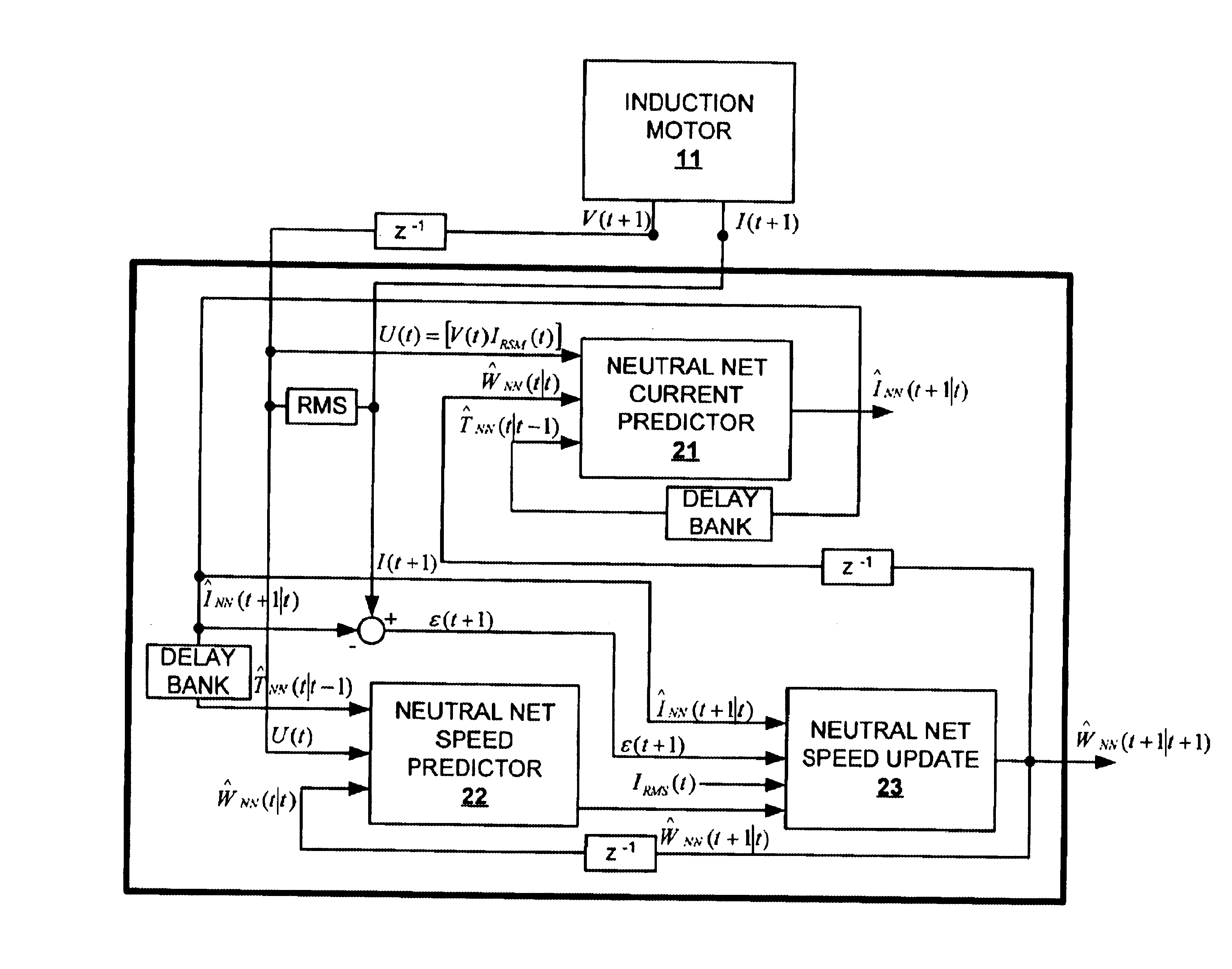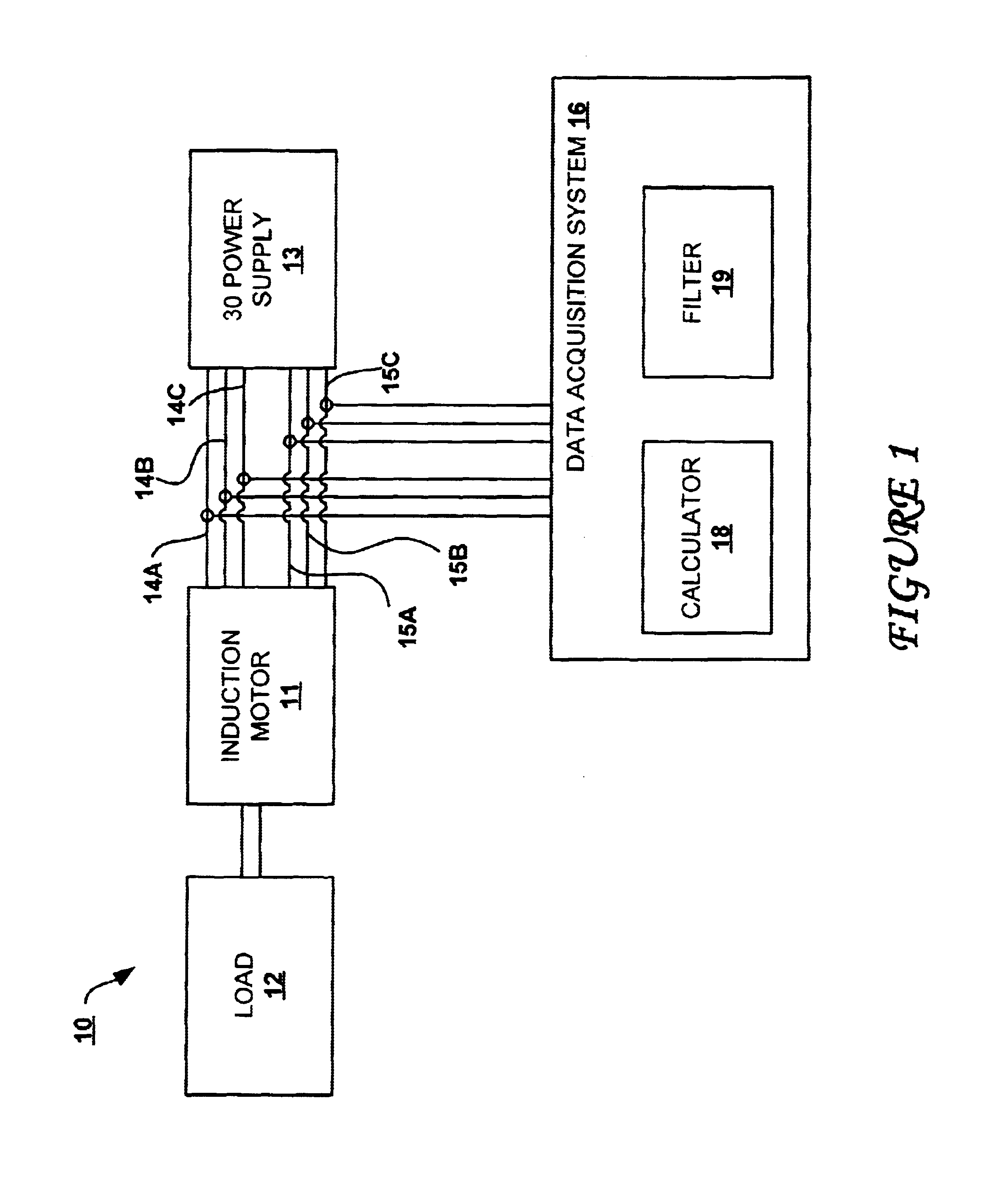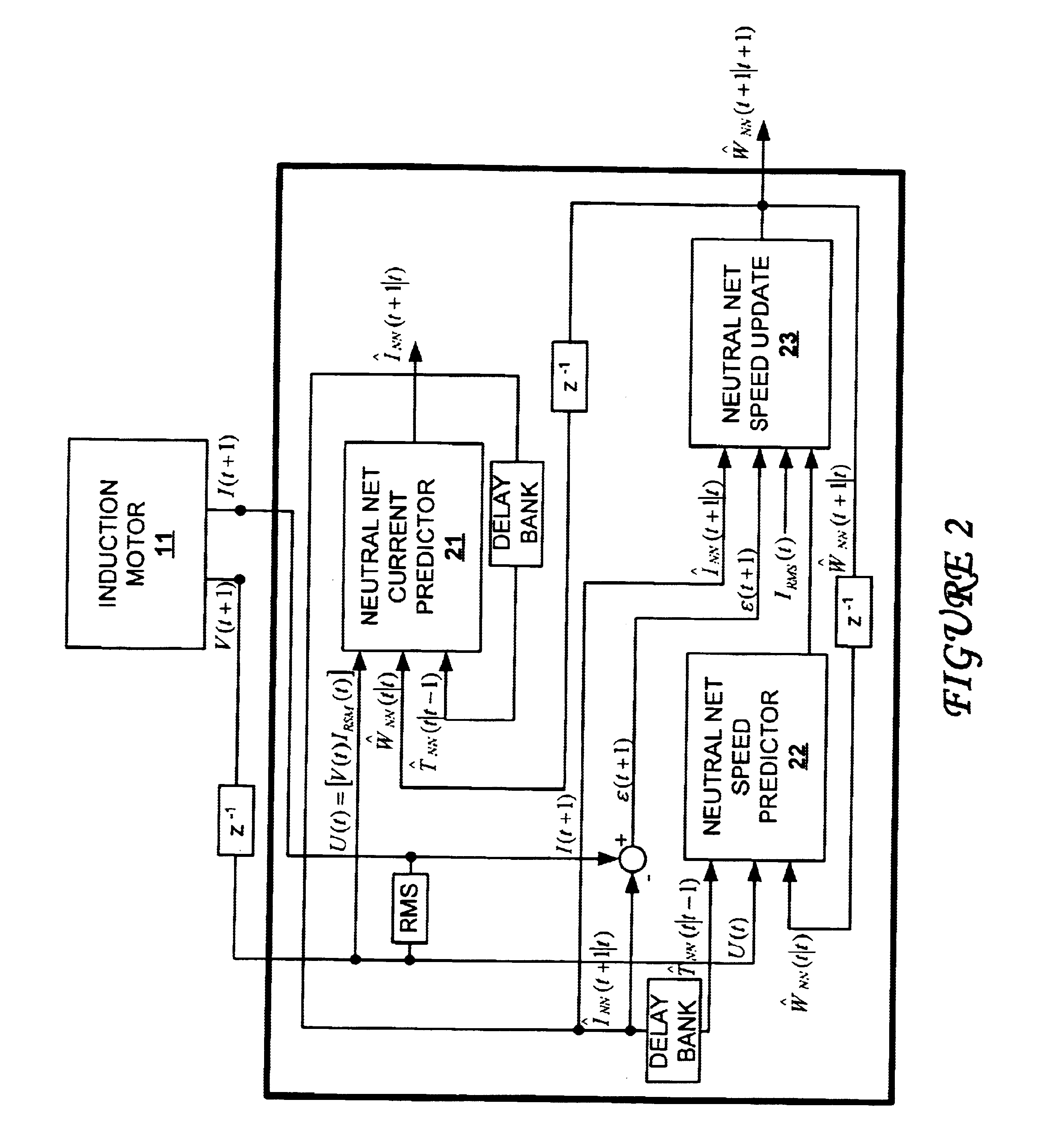Method and system for determining induction motor speed
a technology of induction motor and speed, which is applied in the direction of motor/generator/converter stopper, dynamo-electric gear control, motor/generator/converter stopper, etc., can solve the problem of unsuitable introduction of transducers or other physical sensors for measuring, the cost of speed sensor installation could be comparable to the cost of the motor itself, and the probability of failure of the speed sensor is higher than the probability of failur
- Summary
- Abstract
- Description
- Claims
- Application Information
AI Technical Summary
Benefits of technology
Problems solved by technology
Method used
Image
Examples
Embodiment Construction
Referring now to the drawings and in particular to FIG. 1, there is depicted a block diagram of an induction motor assembly, in accordance with a preferred embodiment of the present invention. As shown, an induction motor assembly 10 includes an induction motor 11, a three-phase power supply 13, and a data acquisition system 16. Induction motor 11 is preferably a three-phase motor that is powered by three-phase power supply 13 via three voltage inputs 14a-14c and three current inputs 15a-15c. It is understood by those skilled in the art that induction motor 11 can be of any size having any number of phases. Induction motor 11 is shown to be connected to a load 12. Data acquisition system 16 is operably associated with each of voltage inputs 14a-14c and each of current inputs 15a-15c via a respective hall-effect detector (not shown) that is well-known to those skilled in the art. The hall-effect detectors can unintrusively detect or measure the voltage values at voltage inputs 14a-14...
PUM
 Login to View More
Login to View More Abstract
Description
Claims
Application Information
 Login to View More
Login to View More - R&D
- Intellectual Property
- Life Sciences
- Materials
- Tech Scout
- Unparalleled Data Quality
- Higher Quality Content
- 60% Fewer Hallucinations
Browse by: Latest US Patents, China's latest patents, Technical Efficacy Thesaurus, Application Domain, Technology Topic, Popular Technical Reports.
© 2025 PatSnap. All rights reserved.Legal|Privacy policy|Modern Slavery Act Transparency Statement|Sitemap|About US| Contact US: help@patsnap.com



